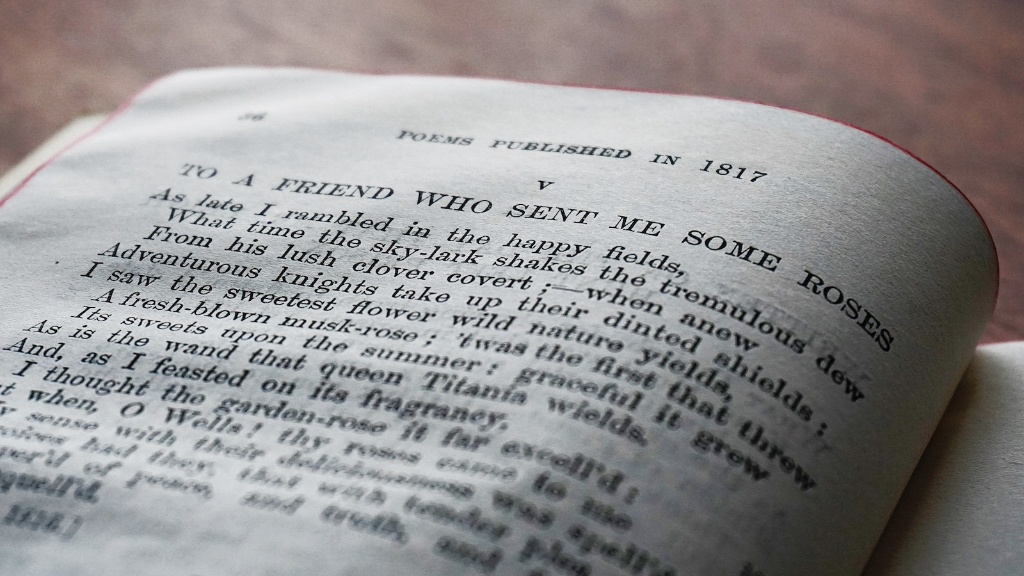The Dream
Langston Hughes’s iconic poem “What happens to a Dream Deferred?” is one of the most famous pieces of literature to come out of the Harlem Renaissance. Through his poetic words, Hughes addresses the decay of ambition and dreams within the African American community.
Part of a longer poem entitled “Harlem,” the piece begins by pondering what happens if an individual’s dream is suppressed, unfulfilled, and ignored. Hughes evocative lines ask us to imagine and think about the implications of this scenario: “Does it dry up like a raisin in the sun?/ Or fester like a sore–/ And then run?/ Does it stink like rotten meat?/ Or crust and sugar over–/ like a syrupy sweet?”
By comparing the dream or ambition to a raisin, sore, rotten meat, or syrup-drenched sweet, Hughes poignantly captures the feeling of defeat, stagnation and delay of the African American dream. His choice of words speaks volumes with each metaphor, painting vivid images of what happens to a dream deferred.
The Rise of Social Injustice
In the early 20th century, the United States was facing a period of social, economic and racial injustice that affected African-Americans most significantly. Apart from racial segregation, African-Americans were deprived of basic rights such as the right to vote, racial profiling was common, and the Jim Crow laws further repressed the African-American community. Hughes’s poem directly addressed such injustices that were happening throughout the country.
By framing the poem in terms of a “dream deferred,” Hughes was drawing attention to the rampant unfairness of the times and the consequences of it. Although it is never explicitly stated, the poem implies that due to the difficult situation of African-Americans at the time, their dreams were being violently stripped away. Hughes’s poem has become a timeless testament to the struggles that many people of color still face today.
Inspiring Hope
Whilst Hughes’s poem is rooted in tragic realities, it also serves as a means for inspiring hope within the African-American community. Ultimately, Hughes challenges the African-American people to not merely sit around and accept the pain of their present situation, but to fight for a better tomorrow.
The poem moves away from anxious waiting and towards action. This is shown in its final lines, in which Hughes states: “…But what happens to a dream deferred?/ Maybe it just sags/ like a heavy load. Or/ does it explode?” Here, the poem suggests that the power of deferred dreams can cause an eruption, a transformation to bring about necessary change.
By inspiring hope, the poem further implores African-Americans to break free from their oppression and push society’s boundaries. This is why Hughes’s poem is still celebrated today as it continues to be a powerful source of motivation and inspiration.
The Legacy of Hughes’ Poem
Over a hundred years since its publication, Hughes’s “What happens to a Dream Deferred?” still resonates with readers around the world and continues to be a crucial part of the African-American literary canon. Through his words, the poem has become a powerful declaration and testament to the power and importance of dreams, as well as a call for justice and a better future for African-Americans.
The poem has been adapted into plays, musicals, songs, and has also been used as a rallying cry by civil rights activists such as Martin Luther King Jr. In its universality, the poem transcends borders and captures the heart of any individual, regardless of race or profession.
The Relevance of the Poem Today
Today, the poem is still applicable to the current African-American narrative and has been used to represent contemporary social issues. Even in the 21st century, black lives are still undervalued and racial injustice continues to exist. These issues have been highlighted in recent movements like Black Lives Matter.
Much like a century ago, Hughes’s poem serves as a poignant reminder of the power of dreams, regardless of the oppressive systems being faced. It is also a way to express the pain and resilience of the African-American community.
The Metaphors of Hughes’ Poem
Hughes makes extensive use of metaphors in his poem to further emphasize the consequences of ignoring a dream. Through his metaphors, Hughes illustrates the physical, mental, and emotional effects of having a dream deferred.
The imagery he uses is deeply evocative, as Hughes paints a picture of failed ambition and stillness. This sense of stagnation is also mirrored with the phrase ‘sags like a heavy load,’ creating a vivid mental image of an individual unable to move forward.
Ultimately, the metaphors in the poem serve to remind us of the need to pursue our ambitions and dreams, no matter the obstacles that block our path. As Hughes writes, the power of our dreams can bring us towards the realm of absolute revolution.
Analysing & Deconstructing the Meaning
It is easy to look at Hughes’ poem as a critique of American society, as well as an appeal for freedom and justice for African-Americans. However, beyond this, we can also analyse and deconstruct the poem from a psychological perspective.
From a Freudian viewpoint, Hughes’ poem can be interpreted as an exploration into the individual’s subconscious. Through his metaphors and imagery, Hughes touches upon issues of repression, denial, and the feelings of being trapped or abandoned.
This analysis helps to give greater understanding to the poem, as well as to Hughes’s greater oeuvre and intentions. By examining the poem in this fashion, we can gain insight and understanding into the impact of racial injustice on the subconscious of individuals.
The Role of Symbolism
One key element of Hughes’s poem is its use of symbolism. Symbols are used extensively throughout, reflecting the situation of African-Americans and how their dream is invariably in decline.
Symbols in the poem also represent a dream that is in flux, unable to move forward due to the oppressive conditions. For example, Hughes’ use of the term ‘Raisin in the sun’ shows the wilting away of hope, as a raisin is a dried grape, and is no longer able to serve its purpose as a fruit.
Another key symbol used in the poem is that of a ‘heavy load.’ This expresses the weight of oppression, and how it can easily crush someone’s ambition, regardless of how much determination one has. The symbols in the poem bring out the psychological costs of unfulfilled dreams and the consequences of such a situation.
The Significance of “What Happens To A Dream Deferred?”
For over a century, Hughes’s poem has been a way of articulating the African-American experience and raising awareness about the current injustices within society. The poem has also been a call for a better future, for the African-American community and for people of colour everywhere.
In recent times, the poem has been used as inspiration and hope in the fight for justice and equality. This poem is and will be hugely significant for generations to come, as it immortalizes the struggle of African-Americans and serves as a reminder to strive for a better and brighter future.





